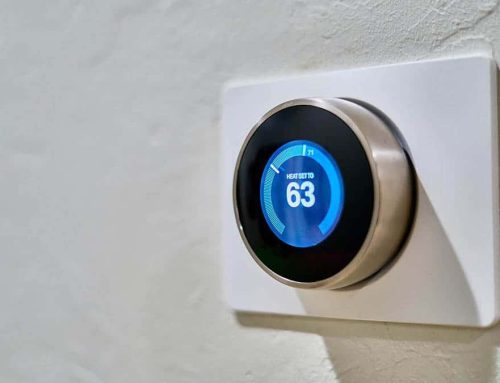Why is My House So Cold Even When the Thermostat is Turned Up?

Coming home to a cold house in the middle of winter is the last thing anyone wants – especially when you’re paying for it to be nice and warm! If you feel a chill even when you use your heating system, it’s time to figure out the source of your problem and find a solution.
Here are some reasons why your house may be cold even when the heating is on and what you can do to warm things up:
Heat Doesn’t Deliver
If the heat is running and your house has oddly cold rooms, they are unevenly heated, or vents or radiators aren’t giving off much heat – there could be a problem with heat delivery.
Insulating your home will surely help keep the heat inside, but it first needs to be properly delivered.
There could be leaky ductwork, so to prevent heat escaping all your ductwork needs to be wrapped with fiberglass insulation, and covered with foil-faced duct tape.
If your house has ductwork, it should be designed to allow for a good airflow, based on the size and layout of your rooms and their proximity to your heat source, and some other factors (for a forced-air system). If ductwork is not configured correctly, and the system is sized incorrectly, your home may still be cold even when the heating is on.
With ductless system, there are no air leaks through ductwork. If properly sized, ductless is usually more efficient than traditional systems.
Check all the vents in your home and make sure they are fully open and unobstructed in the rooms you want heated. If they are blocked or covered with large furniture like couches or beds, the heat will be absorbed into upholstery, leaving the rooms cold. If you have radiators, the same applies for radiator heat – if the airflow is messed up, your heating system needs to work harder and is not as effectively heating your home. Just keep long curtains and furniture clear of your heat delivery so airflow can flow in and around your rooms.
Now, if you have rooms that you don’t use, you may not want to pay to heat them. You may be able to keep the vents closed and doors shut so that the space is not a part of your thermostat’s reading, but be aware that this can alter the air and heat flow in the house and may not be as money-saving as you would think.
Faulty Furnace, Boiler or Heat Pump
Is your furnace, boiler or heat pump healthy and smoothly operating? It’s recommended that your heating system gets an annual inspection by a licensed HVAC technician. The furnace is more likely to break unexpectedly if you skip this regular check.
In addition to the furnace, boiler, or heat pump inspection, you may want to opt for an annual maintenance or cleaning. Proper maintenance and cleaning can ensure that your system is running at top efficiency and can extend the life of your system.
Poor Insulation
Heat can exit your home through freezing floors, warmth-sucking windows, etc., especially in older houses.
Triple pane windows are the best way to prevent heat loss, but if upgrading to this level of insulated windows is not in your budget, make sure you check for gaps or leaks along the edges of your windows and fill them in with caulk.
Get heavier drapes and a set of blinds – thicker materials will trap colder air between the fabric and the window, and even blinds will provide some insulation.
Check outside doors: if you notice a draft when they are firmly shut, it’s time to replace the weather stripping. If the draft is coming in from under the door, install a brush to keep out cold air; door brushes for mail slots are also available.
Another insulation problem could be cold walls. Heat travels through drywall, and if the ceiling opens into an attic, the heat will escape there. You can address that by fitting a board to cover the gap and seal it with foam.
If you have a vaulted ceiling, the heat rises and the lower area cannot stay as warm. The heat is not lost, so if you have a ceiling fan there set it to fan air down and enjoy a warmer lower level of the room.
A full service HVAC company can offer a home energy audit to help look for issues such as insulation problems.
Check the Humidity Levels
Another thing to consider is humidification of your home. Using your heater and humidifier in tandem will possibly help you save on your winter utility bills, since air with higher levels of water vapor will feel warmer than drier air at the same temperature.
Heating your home to a comfortable temperature will make the indoor air even drier, so if you are concerned about your health, the comfort of your home, and your bills, using a whole-house humidifier is your best bet.
Place your trust in UGI Heating, Cooling & Plumbing’s skilled HVAC contractors to ensure you’re getting the right system based on your budget, environment, and home needs.
Are you ready to enjoy the full cozy comfort of your entire home in the freezing winter cold?
Keep Comfortable All Winter Long – for furnace repair, furnace replacement, and other heating solutions make an appointment today with the leading HVAC company serving in the Lehigh Valley PA, Harrisburg PA, Lancaster PA, Reading PA, and now Chester County and Buck County PA.
